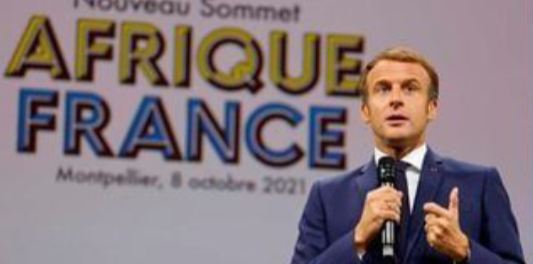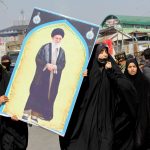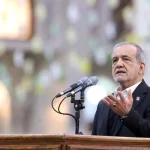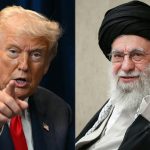
French President Emmanuel Macron says his country owes Africa something, but which it must now repay progressively.
At the first ever France-Africa Summit, that excluded politicians, the French leader said that Africa’s relations with France, one of its former colonial masters, has not always produced benefits for both sides, but said these are
lessons to be taken to the future.
“France owes Africa a debt, and we now must find ways of effectively paying that debt in a sustainable
manner,” he said.
Macron spoke in the French city of Montpelier, in the presence of about 5,000 representatives from Africa, none of
which was a mainstream politician, but mainly from French-speaking countries.
During his brief speech that preceded a round table discussion with 12 African youth, Macron acknowledged that Africa and France are tied at the hip, and that it has now become apparent that interdependence, collaboration and
solid partnerships between the two parties will be the only solution to the problems hindering good relationships
between France and Africa.
Find practical solutions
“I have heard your concerns, and I encourage all of you to be brutally honest and to speak out boldly so that together we can find practical solutions to our problems,” Macron said during the summit that was held in a bid to interrogate the barriers that prevent Africa and France from enjoying a cordial relationship.
The summit was held in the backdrop of heightened tensions between Africa and France, particularly brought about by
the instability in Africa’s Sahel region, and the various coups and attempts that have been witnessed in French-speaking Africa including Mali, Chad and Guinea.
In fact, of all West Africa’s former French colonies, only Senegal hasn’t witnessed a coup. Critics have argued that
this instability is partly because of the way France granted independence, and how it maintained its finger on the pulse
of politics in those countries.
The meeting brought together entrepreneurs, sports personalities, cultural activists and researchers, film directors, scientists and students.
No African head of state was invited, which was a notable change from previous summits. Benoît Verdeaux, a former
diplomat and the current secretary general of the Montpellier Summit, said that this was necessitated by the fact that the average age of the population in most of Africa is between 30 and 40 years-of-age, and not the typical elderly statesmen.
He also acknowledged the fact that the monetary aid that France extends to African countries is neither sustainable nor helping the countries develop. For this, he promised to change the name of the France Development Agency and restructure its mandate and operations. The FDA will be celebrating its 80th birthday this year.
Poor relationship
Macron also touched on the poor relationship between France and Africa, and committed to doing everything in his
power to ensure that this relationship improves.
Regarding the war in Mali and other west African states, Macron defended his position and said that France’s
interventions in those states only comes in when needed, and is never intended to destabilise the countries
“I have never sat in a military meeting to strategise against a sovereign head of state. But when presidents refuse to leave power or to hold elections, or seek to extend their terms unlawfully, it is the duty of the regional communities to intervene. That is our role. To support regional bodies in protecting democracy and ensuring peace and stability within troubled African states,” Macron said






